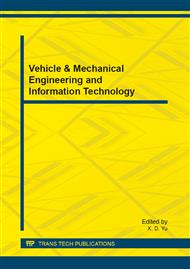p.25
p.29
p.33
p.42
p.46
p.53
p.57
p.64
p.75
EDA-Based Charging Algorithm for Plug-In Hybrid Electric Vehicle to Shift the Peak of Power Supply
Abstract:
This paper proposes a charging algorithm which is based on the Estimation of Distribution Algorithm (EDA) for Plug in Hybrid Electric Vehicle (PHEV). The proposed algorithm shifts the peak of power supply, satisfies the requested State of Charge (SoC [%]), and minimizes the charging cost. The proposed algorithm uses flexible weight for charging and upper charging limit to each PHEV to minimize the charge amount in peak time. The simulation result shows that the proposed algorithm shifts the peak of power supply in commute time zones, satisfies SoC of 93% PHEVs, and reduces charging cost by 31% compared with conventional EDA algorithm.
Info:
Periodical:
Pages:
46-50
DOI:
Citation:
Online since:
December 2012
Price:
Сopyright:
© 2013 Trans Tech Publications Ltd. All Rights Reserved
Share:
Citation:


